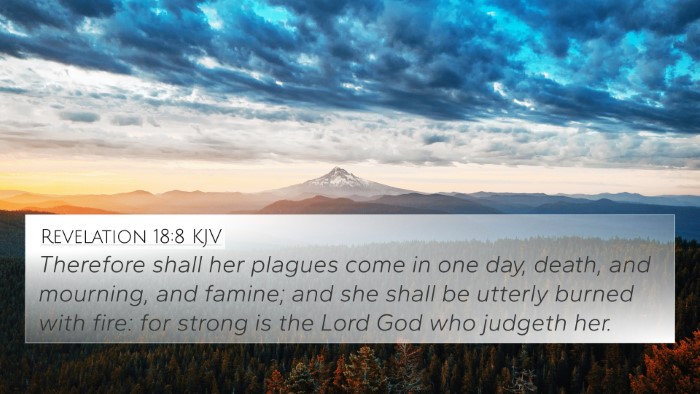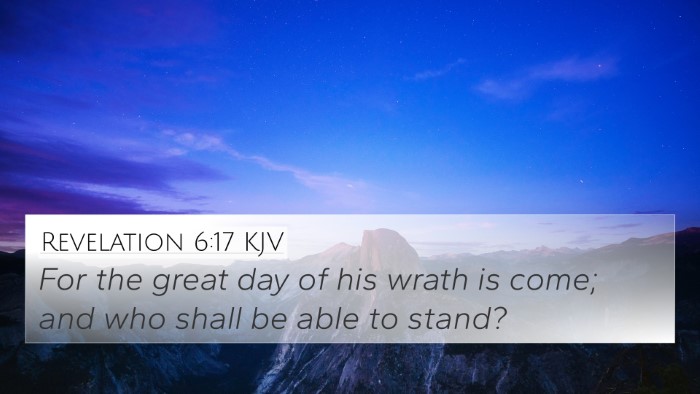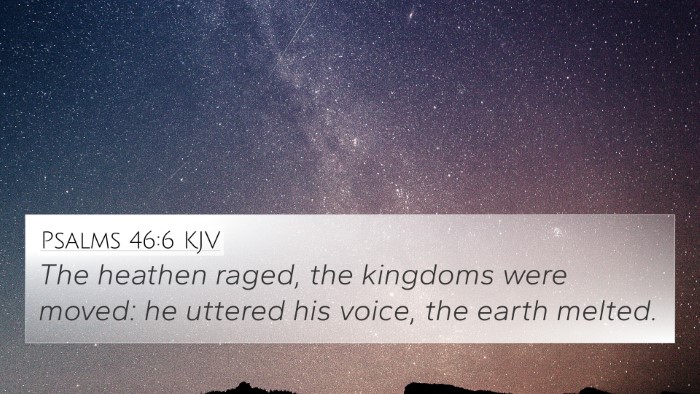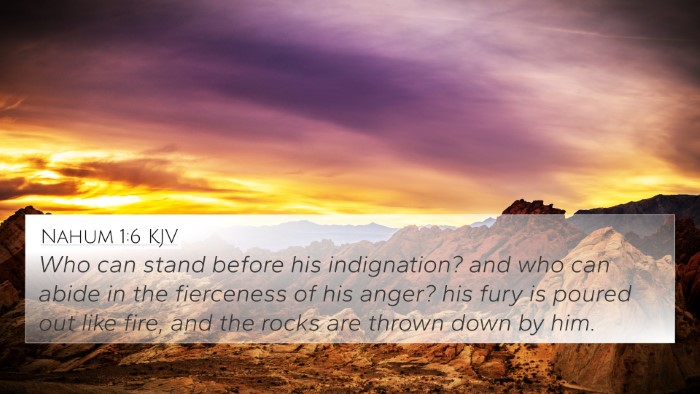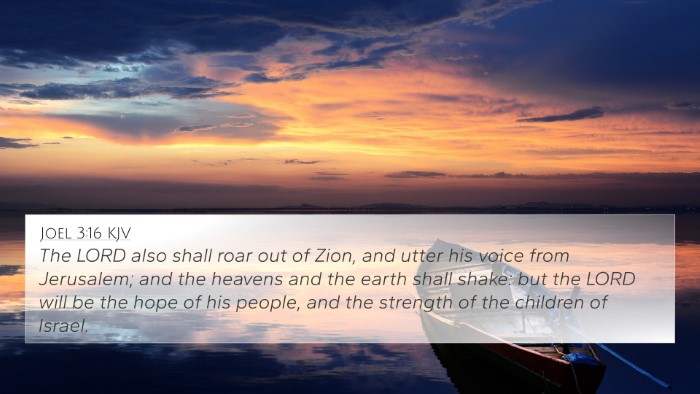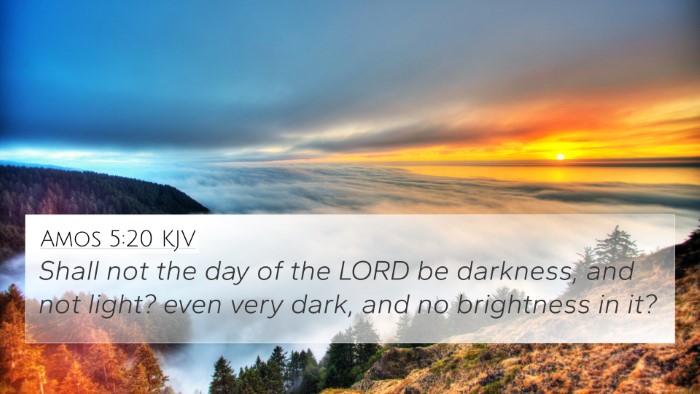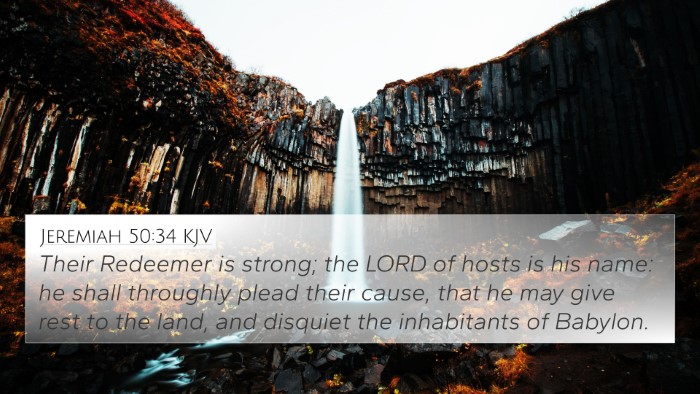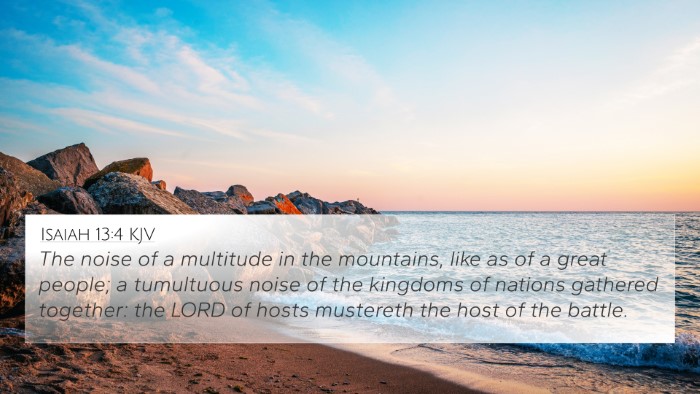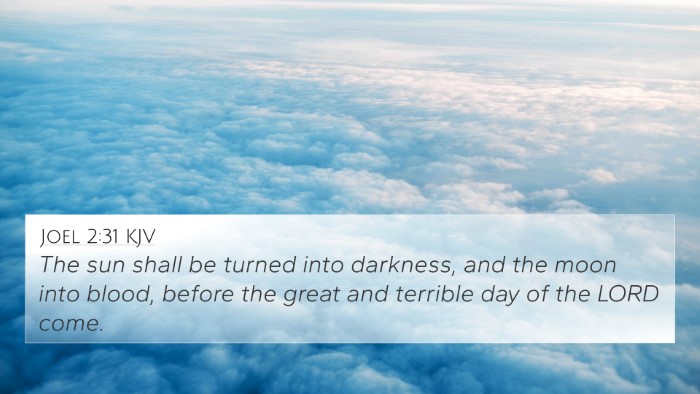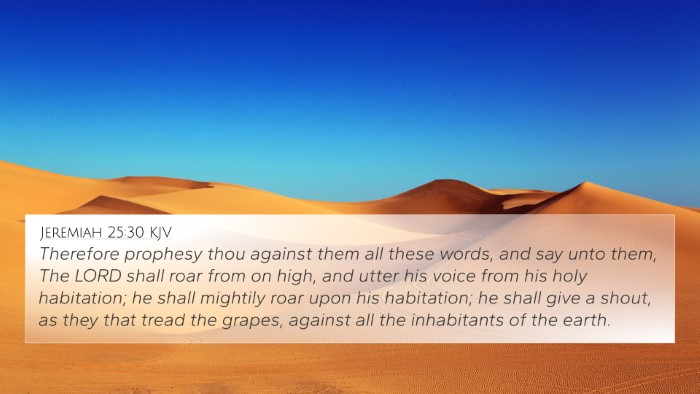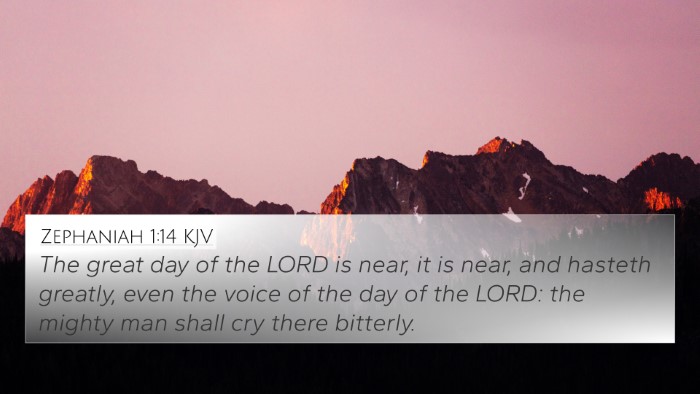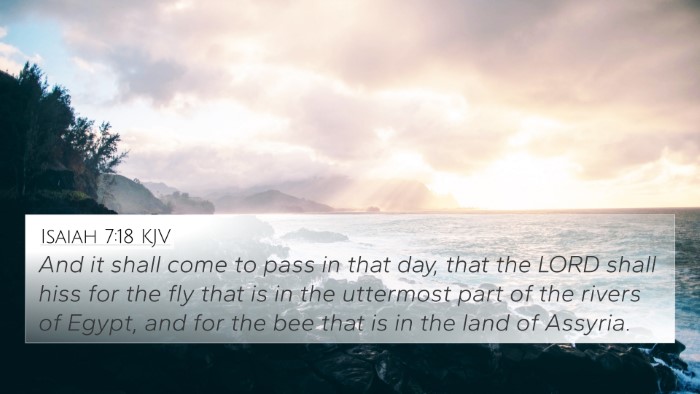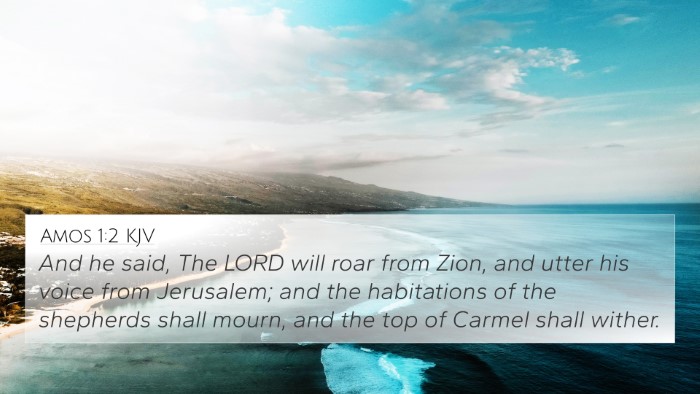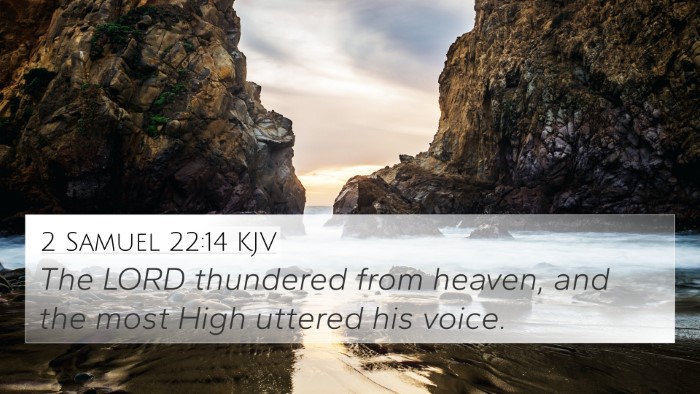Understanding Joel 2:11
Verse: "And the LORD shall utter his voice before his army: for his camp is very great: for he is strong that executeth his word: for the day of the LORD is great and very terrible; and who can abide it?" (Joel 2:11, KJV)
Summary of Meaning:
This verse speaks to the overwhelming power and authority of God, portraying Him as a mighty commander leading a formidable army. The proclamation of the Lord's voice indicates His direct involvement in the affairs of humanity, especially in terms of judgment. The phrase "great and very terrible" establishes the serious nature of God's day, emphasizing the urgency and significance of repentance and the consequences of disobedience.
Insights from Public Domain Commentaries
Matthew Henry’s Commentary
Matthew Henry emphasizes the imagery of God as a leader of a powerful divine army. He notes that God’s voice is a commanding signal for His forces, which are vast and glorious. The strength of those who execute God's word signifies that there is no power like the divine. Henry points out that the "day of the LORD" refers to times of judgment, which are to be taken seriously, as they bring about significant events of consequence for all of creation.
Albert Barnes’ Notes
Albert Barnes discusses the metaphor of the LORD’s army, highlighting both the strength and the multitude of God’s forces. He states that the might of God’s message can lead to judgment and change in the world. Barnes mentions that this verse sets a tone of urgency, compelling the audience to respond to God's call and reflect on their moral state. He also connects the day of the LORD with moments of divine intervention throughout Biblical history.
Adam Clarke’s Commentary
Adam Clarke focuses on the "great and terrible" aspect of the day of the LORD, explaining that this term indicates a time of decisive action from God. He outlines how such moments are fearsome for those who oppose God’s commands but serve as vindication for the righteous. Clarke further explains that the awareness of God's power should evoke reverence and seriousness among believers and non-believers alike.
Cross References
- Isaiah 13:6 - A warning of the day of the LORD drawing near.
- Zephaniah 1:14-15 - Descriptions of the terrible day of the LORD.
- Revelation 6:17 - The great day of God’s wrath is explicitly mentioned.
- Matthew 24:30 - The coming of the Son of Man with power is described.
- Joel 2:1 - A call for warning about the coming judgment.
- Jeremiah 46:10 - The day of vengeance of the LORD is referenced.
- Amos 5:18 - A caution against longing for the day of the LORD.
- Malachi 4:5 - Refers to the coming of the great and dreadful day of the LORD.
- Romans 2:5 - The judgment of the day, showing God's wrath against unrepentant hearts.
- Acts 2:20 - Quoting Joel, telling of the day of the LORD coming as a sign of judgment.
Connections and Thematic Analysis
This verse in Joel 2:11 sets the stage for understanding the nature of God as a just judge and a powerful protector of His people. The connections between other scriptures emphasize themes of divine judgment, the power of God's word, and the significant seriousness of the times when God intervenes in human history.
By exploring the links between these verses, we can better grasp the comprehensive message about God's sovereignty, the necessity of repentance, and the hope of salvation amidst His judgment. This thematic connection creates a clearer understanding of how Joel's prophecy fits into the larger narrative of the Bible.
Using Cross-References for Deeper Study
Engaging in Bible cross-reference systems allows believers and scholars alike to uncover deeper meanings and interconnections throughout the Scriptures. Here are some tools and methods to enhance your study:
- Bible Concordance: A useful resource for tracking specific words or themes across different books of the Bible.
- Bible Cross-Reference Guide: A tool to find verses that relate to a specific topic or verse.
- Cross-Reference Bible Study: A method that involves studying verses in relation to one another to gain a fuller insight.
- Identifying Connections: Understanding how verses connect across the Old and New Testament enhances comprehension ofScriptural teachings.
- Comparative Bible Verse Analysis: Comparing and contrasting verses helps reveal the context and deeper theological implications.
- Inter-Biblical Dialogue: Examining how different parts of the Bible speak to each other enriches one's faith and understanding.
Conclusion
In summary, Joel 2:11 serves as a powerful reminder of God's sovereignty and the importance of being attuned to His word and actions. Through careful analysis and the use of cross-references, one can develop a comprehensive understanding of this verse and its implications on the believer’s life today. The teachings encapsulated in this verse resonate through various other scriptures, revealing the depth and seriousness of God’s message throughout the Bible.




